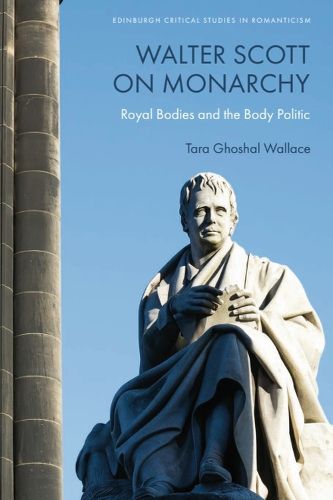Readings Newsletter
Become a Readings Member to make your shopping experience even easier.
Sign in or sign up for free!
You’re not far away from qualifying for FREE standard shipping within Australia
You’ve qualified for FREE standard shipping within Australia
The cart is loading…






This book situates Walter Scott's novels on monarchy within both their historical contexts and biopolitical theory, particularly regarding the King's Two Bodies, a notion that, according to Ernst H. Kantorowicz, raises 'the spectre of an absolutism. . .in an abstract physiological fiction.' It attends to Scott's careful calibration of the historical record behind each novel while noting that his reflections on the seismic shifts caused by the French Revolution and the Napoleonic era culminating in The Life of Napoleon Buonaparte (1827) informs his representations of monarchy in the novels. While each novel's consideration of the rights and limitations of royal prerogatives is deeply grounded in its own historical context, Scott's fiction and the Life demonstrate keen awareness of the nineteenth-century shift to what Michel Foucault calls 'governmentality' that is, the sovereign power's project to control and protect subjects, often through surveillance, policing, and the strategic exercise of mercy.
$9.00 standard shipping within Australia
FREE standard shipping within Australia for orders over $100.00
Express & International shipping calculated at checkout
This book situates Walter Scott's novels on monarchy within both their historical contexts and biopolitical theory, particularly regarding the King's Two Bodies, a notion that, according to Ernst H. Kantorowicz, raises 'the spectre of an absolutism. . .in an abstract physiological fiction.' It attends to Scott's careful calibration of the historical record behind each novel while noting that his reflections on the seismic shifts caused by the French Revolution and the Napoleonic era culminating in The Life of Napoleon Buonaparte (1827) informs his representations of monarchy in the novels. While each novel's consideration of the rights and limitations of royal prerogatives is deeply grounded in its own historical context, Scott's fiction and the Life demonstrate keen awareness of the nineteenth-century shift to what Michel Foucault calls 'governmentality' that is, the sovereign power's project to control and protect subjects, often through surveillance, policing, and the strategic exercise of mercy.